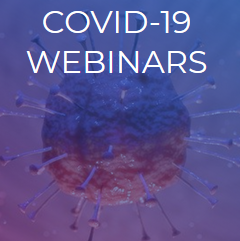With the increasing amount of information and ever-changing regulations, SDAHO is developing a webinar series to connect members with local resources and experts to answer questions and provide information on some of the recent updates surrounding the COVID-19 pandemic.
Below are free webinars provided by SDAHO:
Telemedicine: Regulatory & Reimbursement
Date/Time: Tuesday, April 14, 9-9:30am, CDT
Presenters: Mary DeVany, gpTRAC, Joy Krush, Eide Bailly, & Deyon Suchla, Eide Bailly
Centers for Medicare & Medicaid Services (CMS) has broadened access to telehealth services so that beneficiaries can receive a wider range of services from their doctors without having to travel to a healthcare facility. The COVID-19 policy changes have created regulatory and reimbursement flexibility, as well as several questions on billing, documentation, and what are considered reimbursable visits. Join the Great Plains Telehealth Resource Consortium (gpTRAC) and Eide Bailly as they discuss what these regulatory and reimbursement changes mean to you.
Payroll Tax Implications of the Families First Act & CARES Act (Less than 500 employees)
Date/Time: Tuesday, April 14, 3-3:30pm, CDT
Presenters: Kim Hunwardsen, Eide Bailly & Mel Schwarz, Eide Bailly
Eide Bailly & SDAHO will host a live webinar to discuss the employment, labor and tax implications of the Families First Coronavirus Response Act. This session will highlight how this Act will impact healthcare organizations with 500 employees or less. Topics will include emergency paid sick leave, emergency Family and Medical Leave Expansion Act (FMLA), and the employer tax credit for paid sick leave and expanded FMLA.
Trauma-Informed Care: Recognizing and Responding to Residents with Special Needs
Date/Time: Wednesday, April 15, 9:00-10:00am, CDT
Presenter: Barbara Speedling
The Trauma-Informed Care regulations challenge long-term care facilities to ensure that they are fully prepared to care for residents with complex psychosocial needs. As the restrictions imposed by the COVID-19 Pandemic continue, residents impacted by dementia, psychiatric illness or addictions may present with increased agitation, aggression, and restlessness that may fuel elopement attempts. This session offers guidance in assessing and modifying the interventions for residents with special needs to ensure accommodation is person-centered.
Payroll Tax Implications of the Families First Act & CARES Act (500+ employees)
Date/Time: Tuesday, April 21, 9:00-9:30am, CST
Eide Bailly & SDAHO will host a live webinar to discuss the various payroll tax, loan and other provisions under the newly enacted legislation under the Families First Act and the CARES Act. This session will highlight how healthcare organizations with 500 employees or more can take advantage of the various payroll tax deferrals and rebates along with other funding opportunities. Topics will include the employee retention credit, payroll tax deferral and loan and grant provisions.
Tips for Providing Dementia Care During COVID-19 (registration coming soon)
Date/Time: Tuesday, April 21, 1:00-2:00pm, CST
Most likely, dementia does not increase risk for COVID-19, the respiratory illness caused by the new coronavirus, just like dementia does not increase risk for flu. However, dementia-related behaviors, increased age and common health conditions that often accompany dementia may increase risk. For example, people with Alzheimer’s disease and all other dementia may forget to wash their hands or take other recommended precautions to prevent illness. In addition, diseases like COVID-19 and the flu may worsen cognitive impairment due to dementia. This session will share tips on how to care for patients living with Alzheimer’s and other related dementia illnesses within residential communities and home-based settings. Attendees will also learn about available resources provided through the Alzheimer’s Association.
Communicating with Local Government During a Pandemic (more details to come)
Constant public communication between the health care system and local government leaders are key in alleviating public and staff apprehension, while creating a unified front for the community. During a pandemic, this relationship is even more critical. Listen and learn from your peers, county, city and other healthcare providers on lessons learned and best practices in creating effective communication and emergency preparedness planning and response during a pandemic. Frequently asked questions and examples of community partnership related to the COVID-19 outbreak will be discussed.




